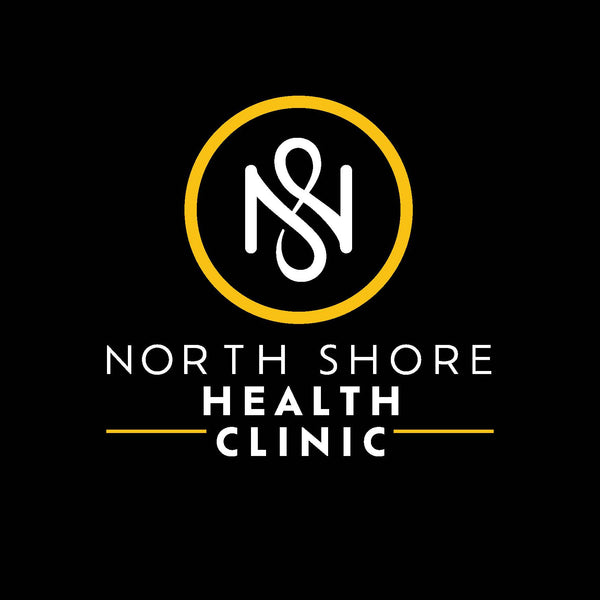Managing Frozen Shoulder at North Shore Health
North Shore Health – Expert Care for Shoulder Mobility and Pain Relief
Updated June 2025 | 3 min read
Understanding Frozen Shoulder (Adhesive Capsulitis)
At North Shore Health, we specialize in managing complex musculoskeletal conditions, including frozen shoulder, also known as adhesive capsulitis. This condition involves progressive pain, stiffness, and a significant reduction in shoulder movement, often severely impacting daily life.
Frozen shoulder typically develops gradually and follows a well-defined clinical course. It is most common in adults aged 40–65 and can occur spontaneously or following injury or immobilization. It is also more prevalent in individuals with diabetes, thyroid disorders, or post-surgical immobility.
Understanding the phases of frozen shoulder allows for more targeted treatment and better long-term outcomes.
Stages of Frozen Shoulder
Stage 1: Freezing Stage
Duration: 6 weeks to 9 months
-
Increasing pain, especially at night or with movement
-
Gradual onset of stiffness
-
Reduced range of motion
-
Sleep disturbances due to pain
Stage 2: Frozen Stage
Duration: 4 to 12 months
-
Pain may plateau or slightly improve
-
Significant stiffness and joint restriction
-
Functional tasks such as dressing or reaching overhead become difficult
-
Inflammation of the joint capsule is at its peak
Stage 3: Thawing Stage
Duration: 6 months to 2 years
-
Gradual return of movement
-
Pain decreases
-
Functional improvements in daily activities
-
Full recovery possible, though may take time
Evidence-Based Approaches at North Shore Health
Our team at North Shore Health uses a multidisciplinary, evidence-led approach to managing frozen shoulder across all stages. Our treatment protocol combines physiotherapy and acupuncture, tailored to each individual’s stage and symptoms.
Physiotherapy Interventions
Physiotherapy is essential for addressing the functional limitations caused by frozen shoulder. Our treatment strategy includes:
-
Joint Mobilization Techniques: Low-grade mobilizations help maintain or improve shoulder capsule flexibility during the freezing and frozen stages.
-
Passive and Active Range-of-Motion Exercises: Gentle mobility exercises promote movement without exacerbating inflammation.
-
Capsular Stretching: Specific stretches target tight portions of the joint capsule to improve flexibility.
-
Postural Training and Education: Restores balanced shoulder mechanics and reduces compensatory strain.
A 2021 clinical trial in Archives of Physical Medicine and Rehabilitation reported that structured physiotherapy significantly improved shoulder mobility and reduced disability scores in patients with adhesive capsulitis compared to watchful waiting or corticosteroid injection alone.
Acupuncture for Frozen Shoulder
Acupuncture is increasingly recognized as an effective adjunct therapy in treating frozen shoulder by targeting pain modulation, inflammation reduction, and tissue healing.
At North Shore Health, our acupuncture protocols focus on:
-
Local Points and Trigger Point Needling: Stimulating acupuncture points such as LI15, SJ14, and SI11 can improve local circulation and release muscular tension in the deltoid and rotator cuff muscles.
-
Electroacupuncture: Mild electrical stimulation at needled points enhances neuromodulatory effects and supports capsular relaxation.
-
Systemic Regulation: Points along the Large Intestine and Triple Energizer meridians help address systemic contributors to inflammation and circulation.
A 2022 meta-analysis published in The Clinical Journal of Pain found that patients receiving acupuncture experienced significant improvements in pain relief, range of motion, and shoulder function compared to those receiving standard care alone.
Another 2023 randomized controlled trial in Journal of Integrative Medicine demonstrated that electroacupuncture combined with physiotherapy was more effective than physiotherapy alone in reducing pain and improving external rotation in patients with stage 2 frozen shoulder.
Long-term outcomes are improved when acupuncture is started early and adjusted through each stage of the condition.
Comprehensive Treatment Plan at North Shore Health
At North Shore Health, we design personalized treatment plans based on your stage of frozen shoulder and individual needs:
-
Thorough Clinical Assessment: Identifying the phase of frozen shoulder and evaluating associated biomechanical restrictions.
-
Integrated Care Model: Combining acupuncture and physiotherapy to reduce pain, improve movement, and restore function.
-
Progressive Rehabilitation: Moving from passive range-of-motion exercises to strengthening and functional movement restoration.
-
Education and Empowerment: Teaching self-management strategies to maintain gains and prevent recurrence.
-
Continuous Review: Ongoing evaluation and adjustment of treatment protocols to reflect patient progress.
When to Seek Professional Help
If you experience persistent shoulder pain, increased stiffness, or loss of mobility, particularly without a clear cause, early intervention is critical. Frozen shoulder is a condition where delayed treatment may prolong recovery and worsen functional impairment.
Contact North Shore Health
If frozen shoulder is limiting your mobility and quality of life, our experienced clinicians at North Shore Health are ready to help. Start your recovery journey today with a personalized treatment plan tailored to your stage and goals.
📍 Serving North Shore, Sydney
📞 Call us at (09) 8065 2034
🌐 www.northshorehealthclinic.com.au
North Shore Health – Restoring Movement, Relieving Pain, Renewing Life.
Let us help you move freely again with expert care for frozen shoulder.

